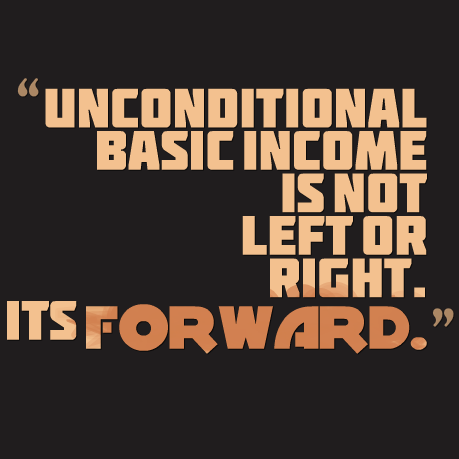Caledonian Voice Debate (1) Universal Basic Income For Scotland?
WELCOME to the first debate hosted by Caledonian Voice, the voice of the National Liberal Party (NLP) in Scotland. As National Liberals we belive in the twin ideals of National Freedom and Social Justice.
Whilst most Scots understand the concept of National Freedom, could the same be said for Social Justice? We believe that Social Justice is best served not by Capitalism – which supports the ‘tyranny of the marketplace’ – nor Socialism – which tries to deny any form of private ownership. We feel that a just and sustainable social order can only exist in which the ownership of property and the means of production, distribution and exchange are widespread.
To achieve this just and sustainable social order the economic influences of the NLP and Caledonian Voice are extremely wide and varied. They include the liberal national interpretation of classical liberal free trade, Lord Rosebery’s call for Britain to become (and Britons to be part of) a ‘great property-owning democracy’, ideas such as the Distributism of GK Chesterton and Hilaire Belloc, monetary reform ideas (including elements of Social Credit), even some early socialists such as Kier Hardie and Bob Blatchford and Guild Socialism (as advocated by the likes of William Morris, GDH Cole and Arthur Penty). The ideas of the Co-Operative movement, the Chartists and Levelers and support for small businesses and shopkeepers and some libertarian economists, are also of interest.
With this in mind this debate looks at the question of introducing a Universal Basic Income (UBI) for Scots. The article reproduced below – see the original here https://www.cnbc.com/2017/12/28/universal-basic-income-why-some-countries-are-seriously-considering-handing-out-free-money.html
– comes from the US-based CNBC, which describes itself as ‘the recognized world leader in business news, providing real-time financial market coverage and business information to approximately 385 million homes worldwide’. It provides a basic outline of what UBI is and why it’s needed.We invite anyone who is interested in UBI for Scotland to have their say in the comments section once they see this article on our Facebook site
https://www.facebook.com/groups/52739504313/ It goes without saying that there are no official links between the National Liberal Party, Caledonian Voice or CNBC.
.
Why Some Countries Seriously Considering Handing Out Free Money
 IMAGINE receiving a pile of cash each month from the government, no strings attached.
IMAGINE receiving a pile of cash each month from the government, no strings attached.
The concept sounds radical, but it’s an economic theory gaining traction from Silicon Valley to the Nordics, called universal basic income. Free money experiments are underway in a handful of countries as governments face evolving workforces and strained welfasre systems.
What is universal basic income?
The International Monetary Fund defines universal basic income as ‘a cash transfer of an equal amount to all individuals in a country.’
Universal basic income differs from other government transfers, like tax refunds or welfasre payments, in that every individual receives the same amount. Receipients can spend the money however they like, and they aren’t required to report how they spend it.
Who supports it?
Tech titans in Silicone Valley like Tesla CEO Elon Musk and Facebook CEO Mark Zuckerberg are some of the biggest advocates of universal basic income. They say free money could provide flexibility for workers who could lose their jobs to robots or automation.
But the idea has been around for centuries. Philosopher Thomas Paine proposed payments ‘made to every person, rich or poor’ in his 1797 work Agrarian Justice.
In 1967, Martin Luther King Junior proposed a “guaranteed income” pegged to the median income level of socirty as a way to combat poverty.
Free-market champion Milton Friedman also advocated for a negative income tax, similar to basic income, as a way to simplify welfare and reduce bureaucracy.
Today universal basic income has support across the political spectrum. Senator Bernie Saunders has called it a “very correct idea” to address income and wage inequality, while some libertarians say it would provide a more efficient, simpler alternative to the existing welfare system.
Has it ever been done?
According to the Organization for Economic Development (OECD), no country has instituted universal basic income as a ‘principal pillar of income support for the working-age population.’ But several countries are experimenting with the idea in a small sample of the population.
Finland launched a trial at the beginning of 2017 where 2,000 unemployed people will receive 560 euros (about $665) each month for two years. Researchers will assess how the free money affects recipients’ incentive to work, and the Finnish government hopes it might reduce bureaucracy in the existing welfare system.
Other basic income experiments are underway in the Netherlands, Kenya, Canada and the United States.
How much free money are we talking about?
There is plenty of debate over the costs of universal basic income.
The 560 euros per month payable in Finland is roughly in line with the amount of unemployment assistance recipients would already receive from the government. Researchers in Finland said other benefits would need to be reduced to pay for a universal basic income across the country.
Yet, in a 2017 report (1), the OECD found that reducing existing benefits to pay for basic income could actually have a negative impact on poverty levels.
‘Overall poverty rates (and gaps) can in fact increase significantly in countries that currently have tightly targeted systems of income support,’ the report said.
Instead of replacing existing programs, some advocates say universal basic income should be an added benefit.
“The better way is to see basic income as a transformation of what’s already there,” said Louise Haagh, chair of the advocacy group Basic Income Earth Network.
(1) https://www.oecd.org/els/emp/Basic-Income-Policy-Option-2017.pdf
Date: May 1, 2018
Categories: Articles































